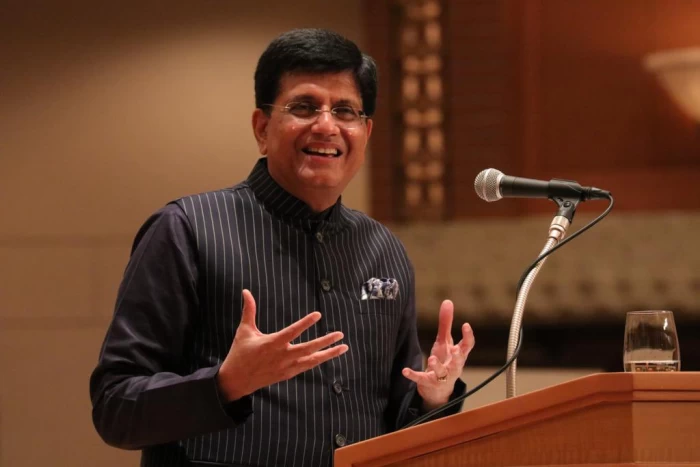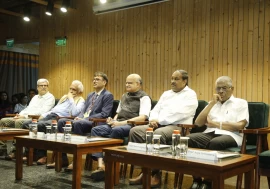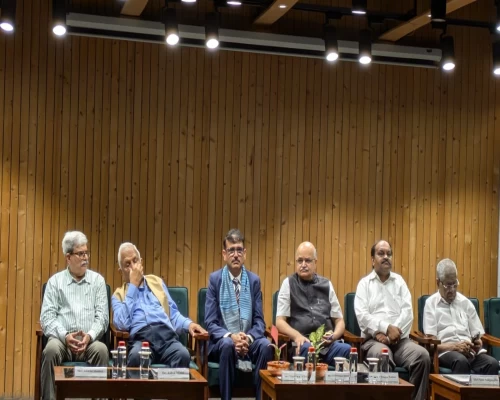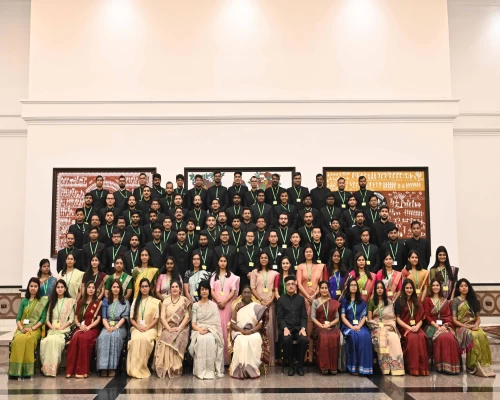
New Delhi: Union Commerce Minister Piyush Goyal on Wednesday came down heavily on online retailers, particularly Amazon, for engaging in predatory pricing practices that threaten to upend the country’s traditional retail sector and could potentially affect India’s 100 million retailers.
The Minister, speaking at the launch of a report, ‘Net Impact of E-Commerce on Employment and Consumer Welfare in India’ compiled by Pahle India Foundation, said the sector’s rapid expansion could cause significant social disruptions and is a cause for concern rather than celebration.
“When Amazon says they are going to invest a billion dollars in India, and we all celebrate, we forget the underlying story that the billion dollar is not coming in for any great service or any great investment to support the Indian economy. They made a billion-dollar loss in their balance sheet that year. They have to fill in that loss,” the Minister of Commerce and Industry said. He said that if Amazon makes Rs 6,000 crore losses in a year, it smells of predatory pricing.
The minister’s most direct criticism was aimed at Amazon. The online retailer reported ₹6,000 crore loss in India last year, which he insinuated was a clear sign of predatory pricing. “If you make a ₹6,000-crore loss in one year, does that not smell like predatory pricing to any of you?” Goyal is reported to have said.
He said Amazon’s much-publicised billion-dollar investment in India might be less about supporting the Indian economy and more about covering these losses. “We do not have a comment on this development as of now,” Amazon was reported to have said on Goyal’s views.
Goyal said that Amazon was taking advantage of regulatory gaps to engage in practices that he implied were legally questionable. Indian law bans e-commerce platforms from directly selling to consumers. However, Amazon has organized its operations in a way that exploits the gap around these restrictions.
“They create entities where Indians contribute to making these entities. Then they get caught and start closing those entities, only to re-route the business through another entity to show it as B2B,” Goyal added. He suggested that this approach enables Amazon to obscure its actual operations and maintain its dominance in the Indian consumer market.
The minister’s critique extended to Amazon’s financial disclosures, particularly the significant sum attributed to payments made to professionals; ₹1,000 crore.
“I don’t know who these professionals are... I want to know what kind of lawyers and CAs get ₹1,000 crore, unless you’re paying all the top lawyers to block them, so nobody can fight a case against you,” Goyal said.
The minister expressed broader concerns about the impact of e-commerce on India’s traditional retail sector. He noted that while e-commerce in India is growing rapidly, with projections of 27 per cent annual growth, the benefits of this growth are not evenly distributed.
“E-commerce is edging into high-margin products,” he said, pointing out that these products are critical for the survival of small retailers. The Minister warned that the unchecked expansion of e-commerce could have devastating consequences for over 10 million small retail stores across Indian cities.
Amazon has faced similar accusations in the US, where a consumer protection agency filed an antitrust lawsuit against Amazon, accusing the online retailer of operating an illegal monopoly, in part by fighting efforts by sellers on its online marketplace to offer products more cheaply on other platforms. /BI/










_500_x_400.webp)

